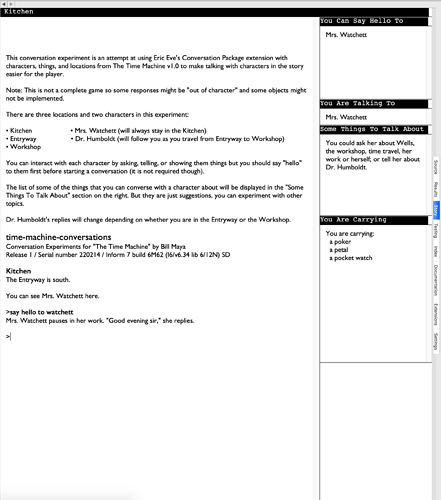@gandalf As someone with 25+ years of software development experience, some who has flirted too long with custom engine development (Storytron), and someone who just wrote their first interactive fiction game for Parsercomp 2021, I would recommend that you take another look at Inform 7 (you did mention “a 2022 version of the Infocom games” in your original post).
I think you will find Inform 7 is a very powerful programming language that will provide you with a great deal of technical satisfaction. While its natural language syntax and grammar can seem strange at first you will find the familiar data and control structures like If/Then/Else, While/EndWhile, etc. underneath.
My own experience with Inform 7 over the past year and a half has provided me with a variety of technical challenges and much personal satisfaction.
While rooted in the parser-based world there are numerous Inform 7 extensions, written in the language itself, that let you modify how it looks, behaves, and operates. I am currently working with Eric Eve’s Conversation Framework and Jon Ingold’s Flexible Windows (see screenshot below).
I’m so captivated by Inform 7 right now that I’m considering one of two side projects—an updated version of @Ron_Newcomb’s Inform 7 For Programmers or a refactor of @DavidC’s FyreVM (haven’t decided which yet or reached out to either individual).
The upcoming open source of Inform 7 also offers the exciting possibility of using Inform 7 as a narrative engine. I find that idea very exciting.
Of course, for a software developer, the allure of writing your own game engine is a powerful one (I still feel it myself from time to time). If you decide to go that route I wish you the best of luck.
But I hope you give Inform 7 another look.
